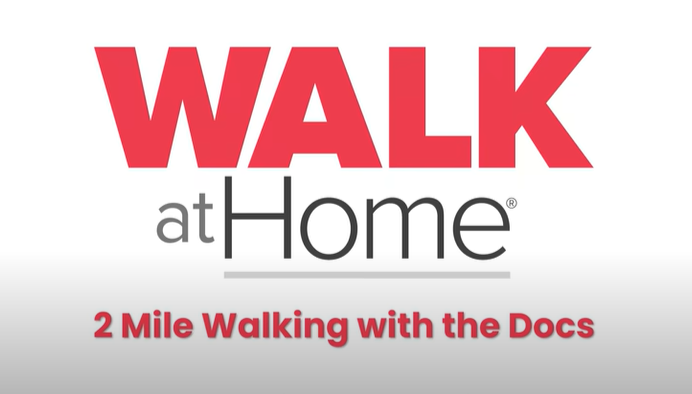What Does Morbid Obesity Mean – A Real Wake Up Call
What Does Morbid Obesity Mean?
Understanding a Class III Diagnosis
Are you wondering what dose morbid obesity mean when doctors use the term? If you’ve heard this phrase during a medical appointment or while researching health topics, you’re in the right place to get clear answers. In this comprehensive guide, we’ll explore what morbid obesity actually means, its health impacts, and most importantly, the supportive approaches available to help manage this chronic condition.

What Does Morbid Obesity Mean?
More Than Just Extra Weight
Morbid obesity, also known as Class III obesity, is not simply about carrying some extra pounds. Instead, it’s a complex chronic disease defined by a Body Mass Index (BMI) that exceeds 40, or 35 if other health conditions are present. This medical classification helps healthcare providers identify when weight begins to significantly impact a person’s overall health and wellbeing. What does morbid obesity mean? It sounds like a foreign word, right? It also has to do with your BMI.
What Is BMI and How Is It Calculated?
BMI serves as a calculation based on your height and weight. While it’s not the only indicator of health, medical professionals widely use this tool to categorize weight statuses. The formula divides your weight in kilograms by your height in meters squared.
For example:
- BMI between 18.5-24.9 is considered normal weight
- BMI between 25-29.9 indicates overweight
- BMI between 30-39.9 signifies obesity
- BMI of 40 or higher represents morbid obesity
When establishing the clinical threshold for morbid obesity, doctors look beyond numbers to understand the point where body weight begins to substantially impact an individual’s health. Consequently, this classification focuses on identifying increased risks for serious conditions like diabetes, heart disease, and other weight-related complications.
The Difference Between Obesity and Morbid Obesity
You might wonder what separates regular obesity from morbid obesity. Essentially, the distinction comes down to the severity of health risks associated with your weight. While obesity (BMI 30-39.9) indicates excess body weight, morbid obesity takes this further, pointing to weight that significantly exceeds healthy ranges and poses heightened health concerns.
It’s important to approach this topic without judgment or stigma. Furthermore, understanding that weight management involves multiple factors is crucial for compassionate discussions. In addition, genetic predisposition, environmental influences, and psychological elements all play roles in weight status. Therefore, the journey toward better health begins with understanding, not shame or blame.

The Health Impacts of Morbid Obesity
Let’s shed light on the serious health issues that often accompany morbid obesity. Indeed, the implications extend far beyond appearance, affecting virtually every system in the body and significantly impacting overall quality of life.
Physical Health Complications
Did you know that morbid obesity links to an array of serious health complications? These include:
- Type 2 diabetes
- Heart disease and stroke
- High blood pressure
- Sleep apnea and respiratory problems
- Certain types of cancer
- Joint problems and osteoarthritis
- Fatty liver disease
These aren’t just statistics – they represent real risks that can severely affect an individual’s health, mobility, and longevity. Additionally, as BMI increases, so does the likelihood of developing multiple chronic conditions simultaneously.
Psychological Impact and Social Considerations
The effects of morbid obesity aren’t limited to physical health. The psychological impact can be equally challenging due to social stigma, discrimination, and reduced quality of life. This often leads to a difficult cycle of:
- Emotional distress and anxiety
- Depression and low self-esteem
- Social isolation
- Difficulty with daily activities
- Reduced work productivity
Understanding these challenges highlights why comprehensive support is essential. Moreover, addressing both physical and emotional aspects of morbid obesity creates more successful outcomes for individuals seeking healthier lifestyles.
Co-morbidities
When Conditions Compound
The role of co-morbidities – conditions that exist alongside morbid obesity – is crucial to understand. These additional health issues can exacerbate existing problems and create complex treatment needs. Common co-morbidities include:
- Hypertension
- Sleep apnea
- Osteoarthritis
- Gastroesophageal reflux disease (GERD)
- Polycystic ovary syndrome (PCOS)
Prevention and management strategies for these health risks typically involve lifestyle adjustments, regular medical monitoring, and sometimes specialized interventions. So how can healthcare professionals properly evaluate and address these concerns? This brings us to diagnostic measures and professional assessments.
Diagnostic Measures and Professional Assessments
When someone consults a healthcare provider about weight concerns, several important evaluations take place. These assessments help determine appropriate interventions and create personalized treatment plans.
Beyond BMI: Comprehensive Evaluation Methods
While BMI provides an important starting point, healthcare providers use additional measurements to get a complete picture:
- Waist circumference – provides insight into fat distribution and related health risks
- Body composition analysis – distinguishes between fat, muscle, and other tissues
- Medical history review – identifies patterns and existing conditions
- Blood tests – screens for metabolic issues, cholesterol levels, and other biomarkers
Beyond these numbers, what matters most is a holistic evaluation that considers your lifestyle factors and daily habits. Your primary care professional or nurse practioner will assess your personal health history, existing conditions, psychological well-being and emotional health.
This comprehensive approach ensures nothing is overlooked when developing an effective treatment strategy. As a result, healthcare providers can identify specific risk factors and create more targeted interventions. This is a tough topic to tackle because I have also struggled with weight issues.

My Personal Journey With Weight Management
Hearing my doctor say, “your BMI is pretty high – 39,” was my wake-up call. His words made me realize my weight had become a significant risk factor for my health. With a BMI approaching 40, I faced increased risks for high blood pressure, elevated cholesterol, and rising blood sugar levels – all major concerns for cardiovascular disease and stroke.
This revelation in my early 30s became my first serious health warning. Subsequently, I committed to making healthier food choices by reducing sodium and sugar intake. Additionally, I joined my local Curves fitness program specifically designed for women.
The results were transformative! After working out consistently for about one year, I lost 66 pounds. Although it required tremendous motivation, I became the happiest person in town as my life improved dramatically on every level. Not only did my stress levels decrease significantly, but my relationships also improved 100%.
Fortunately, during my weight loss journey, I connected with:
- A naturopathic expert who helped accelerate my progress
- Fitness enthusiasts at the gym who expanded my knowledge about nutrition
- Supportive friends who celebrated my successes
However, I’ve learned that sometimes you might veer off your healthy lifestyle path – and that’s okay. The key is knowing how to reset and get back on track while keeping your goals in mind. Remember, transformation doesn’t happen overnight. It requires preparation, the right mindset, and consistent commitment.
Regular check-ups with healthcare providers remain essential, as excess weight carries serious health implications if left unaddressed. Having maintained a healthy lifestyle for the past three years, I can confirm it becomes easier when you clearly understand your “why.” Therefore, making health our top priority creates the foundation for lasting change. Have no worries, my friend. There are interventions and treatment solutions at your disposal.
Treatment Options and Supportive Approaches
Let’s examine the various treatment approaches for morbid obesity, focusing on sustainable strategies for achieving and maintaining healthier weight. These options go beyond quick fixes to develop lasting, health-promoting habits.
Lifestyle Modifications
The Foundation of Success
Lifestyle changes form the cornerstone of any effective weight management plan. These typically include:
- Nutritional counseling and dietary adjustments
- Gradually increasing physical activity levels
- Behavioral therapy to develop sustainable habits
- Stress management techniques
These fundamental changes create the foundation upon which long-term success builds. Furthermore, personalized approaches that consider individual preferences and circumstances tend to be most effective.

Medical Interventions and Support Options
Medical interventions enhance lifestyle efforts or provide options when lifestyle changes alone prove insufficient. These include:
- Prescription weight-loss medications
- Bariatric surgery options (gastric bypass, sleeve gastrectomy)
- Medically supervised very-low-calorie diets
- New technologies like gastric balloons
Research shows these interventions can produce significant positive outcomes for many individuals with morbid obesity, especially when combined with lifestyle modifications. Your healthcare provider can help determine if these options might benefit your specific situation.
The Critical Role of Psychological Support
A key element often overlooked in treating morbid obesity is psychological support. Addressing the emotional aspects of weight management is critical for a well-rounded treatment plan, including:
- Improving self-esteem and body image
- Developing healthy coping mechanisms for emotional eating
- Managing anxiety or depression that may accompany weight concerns
- Building confidence in social situations
Professional counseling, therapy groups, and mental health specialists can provide valuable tools for addressing these important aspects of treatment. In addition, this psychological foundation often determines long-term success with weight management.
The Importance of a Strong Support System
Navigating weight management can feel overwhelming, making a strong support system invaluable. This support network should include:
- Healthcare professionals who provide empathetic, non-judgmental care
- Family members and friends who encourage positive changes
- Community resources that offer practical assistance
- Online or in-person support groups with shared experiences
With comprehensive support addressing both medical and emotional needs, individuals have the best chance of achieving lasting improvements in their health and wellbeing. This multifaceted approach leads us to consider additional resources and community support options.
Moving Forward
Resources and Community Support
Managing morbid obesity extends beyond clinical treatment to include empowerment and community resources. These additional supports create a foundation for lasting success.
The Power of Support Groups and Shared Experiences
Engaging with support groups offers invaluable camaraderie that comes from shared experiences. These networks provide:
- Emotional encouragement during challenging times
- Practical tips and strategies that work in real life
- Accountability and motivation to maintain healthy habits
- Connections with others who truly understand the journey
Whether online or in-person, these communities create safe spaces to discuss challenges and celebrate victories. Consequently, participants often find strength in knowing they’re not alone in their experiences.

Educational Programs That Empower
Education serves as a powerful tool for lasting change. Programs dedicated to teaching nutrition, exercise, and coping strategies do more than inform – they empower individuals to:
- Make informed decisions about their health
- Become proactive participants in their treatment
- Understand the science behind weight management
- Develop skills for long-term success
Many hospitals, community centers, and online platforms offer structured educational opportunities designed specifically for weight management. These resources provide valuable knowledge that supports healthier choices.
Learning From Success Stories
Success stories provide motivation and practical insights. Listening to others who have navigated the challenges of morbid obesity offers:
- Hope that positive change is possible
- Realistic expectations about the journey
- Practical strategies that have worked for others
- Inspiration during difficult moments
These narratives remind us that with the right approach and support, significant improvements in health and quality of life are achievable. Therefore, seeking out these stories can provide both guidance and encouragement.
Final Thoughts
Your Health Journey Is Personal
Your weight management journey is uniquely yours. What works for one person may not work for another, so be patient as you discover your own path. Remember that initial attempts don’t need to be your last – it’s about learning, adapting, and finding what works best for you.
Health maintenance is a lifelong commitment, but celebrating small victories along the way sustains motivation. Each positive choice builds toward better health, regardless of the pace. Moreover, focusing on improved wellbeing rather than just numbers on a scale creates more meaningful and sustainable progress.

If you’re struggling with weight management or have questions about morbid obesity, consult with healthcare professionals who can provide personalized guidance. With the right support, information, and approach, positive changes are within reach.
About the Author:
Founder and CEO
(w) mybluegenes.com
(e) rachele@mybluegenes.com






One Comment